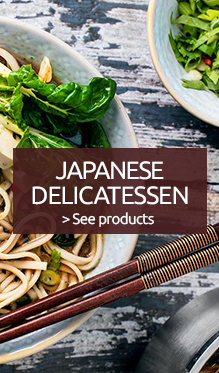

Selection
Japanese alcohols
Enjoy the best of Japanese grocery shopping online now. Discover a selection of high quality sake, selected from the best Japanese breweries. We have selected for you a range of Japanese sakes and whiskeys using several grades and a range of different aromas, as well as a range of modern sakes Made in France, designed with local ingredients and brewed in France by a Japanese master brewer.
Blend of malt and grain whiskeys with a minimum age of 9 years.
JAPANESE WHISKY
700ml
View product
JAPANESE WHISKY
700ml
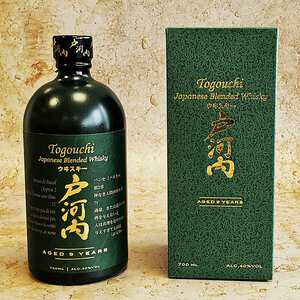 WHISKY TOGOUCHI 9 ANS 700ml
WHISKY TOGOUCHI 9 ANS …
Japanese whisky
74,00 €
WHISKY TOGOUCHI 9 ANS 700ml
WHISKY TOGOUCHI 9 ANS …
Japanese whisky
74,00 €
A 43° whiskey produced by the Sakurao distillery.
JAPANESE WHISKY
700ml
View product
JAPANESE WHISKY
700ml
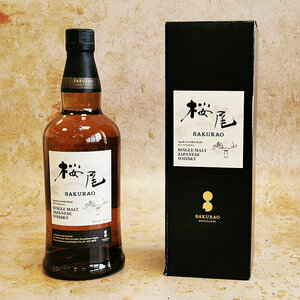 WHISKY SAKURAO SINGLE MALT 700ml
WHISKY SAKURAO SINGLE …
Japanese whisky
79,80 €
WHISKY SAKURAO SINGLE MALT 700ml
WHISKY SAKURAO SINGLE …
Japanese whisky
79,80 €
A very limited edition produced by the Saburomaru distillery,
JAPANESE WHISKY
700ml
View product
JAPANESE WHISKY
700ml
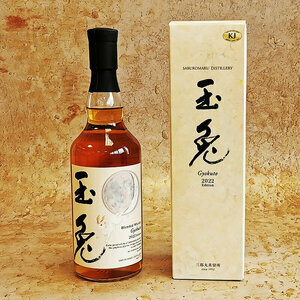 WHISKY GYOKUTO 700ml
WHISKY GYOKUTO 700ml …
Japanese whisky
108,00 €
WHISKY GYOKUTO 700ml
WHISKY GYOKUTO 700ml …
Japanese whisky
108,00 €
Whisky, produced by the Miyashita distillery.
JAPANESE WHISKY
700ml
View product
JAPANESE WHISKY
700ml
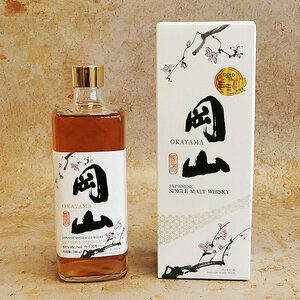 WHISKY OKAYAMA TRIPLE CASK SINGLE MAT …
WHISKY OKAYAMA TRIPLE …
Japanese whisky
168,00 €
WHISKY OKAYAMA TRIPLE CASK SINGLE MAT …
WHISKY OKAYAMA TRIPLE …
Japanese whisky
168,00 €
Sake with intense fruity flavors.
SAKE JUNMAI
300ml
View product
SAKE JUNMAI
300ml
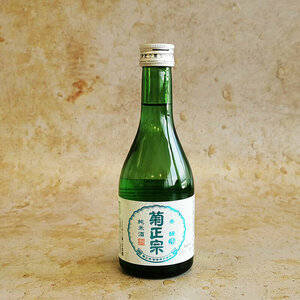 KIKUMASAMUNE JUNMAI KOJO SAKE
KIKUMASAMUNE JUNMAI …
Japanese sake
13,90 €
KIKUMASAMUNE JUNMAI KOJO SAKE
KIKUMASAMUNE JUNMAI …
Japanese sake
13,90 €
Crystalline nose, typical of Ginjo-type sakes. Discreet melon aromas on a refreshing finish.
JUNMAI GINJO SAKE
300ml and 720ml
View product
JUNMAI GINJO SAKE
300ml and 720ml
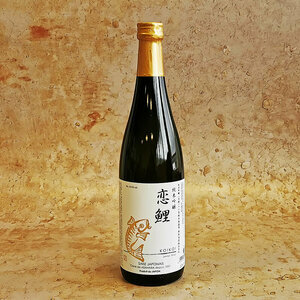 KOÏKOÏ JUNMAI GINJO
KOÏKOÏ JUNMAI GINJO
Japanese sake
from 21,90 €
KOÏKOÏ JUNMAI GINJO
KOÏKOÏ JUNMAI GINJO
Japanese sake
from 21,90 €
Soft, sweet and fruity on the palate
PLUM ALCOHOL
720ml
View product
PLUM ALCOHOL
720ml
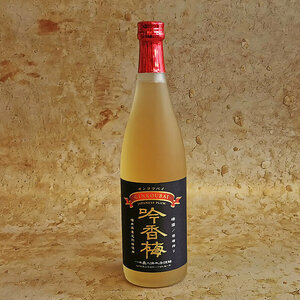 UMESHU IPPONGI
UMESHU IPPONGI
Japanese sake
29,80 €
UMESHU IPPONGI
UMESHU IPPONGI
Japanese sake
29,80 €
Delicate aroma, sensation of a touch of rice aroma.
SAKE MADE IN FRANCE
250ml
View product
SAKE MADE IN FRANCE
250ml
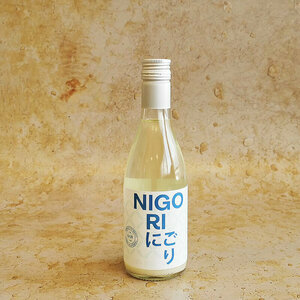 NIGORI SAKE 250ML
NIGORI SAKE 250ML
French sake
12,80 €
NIGORI SAKE 250ML
NIGORI SAKE 250ML
French sake
12,80 €
This sake with a milky white robe provides unique sensations.
SAKÉ NIGORI JUNMAI
300ml
View product
SAKÉ NIGORI JUNMAI
300ml
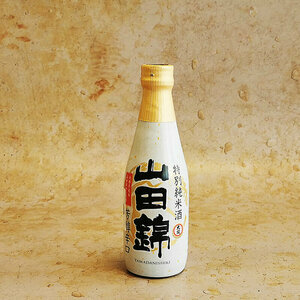 OZEKI YAMADANISHIKI SAKE 300ML
OZEKI YAMADANISHIKI …
Japanese sake
13,90 €
OZEKI YAMADANISHIKI SAKE 300ML
OZEKI YAMADANISHIKI …
Japanese sake
13,90 €
Brewed only with rice, filtered water, and koji mold, junmai sake generally has a full, slightly sour flavor.
SAKÉ JUNMAI GENSHU
300ml or 720ml
View product
SAKÉ JUNMAI GENSHU
300ml or 720ml
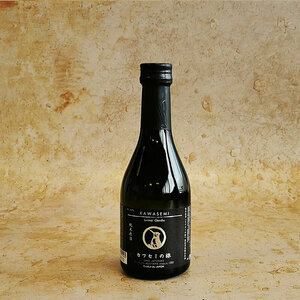 KAWASEMI JUNMAI GENSHU SAKE
KAWASEMI JUNMAI …
Japanese sake
from 25,80 €
KAWASEMI JUNMAI GENSHU SAKE
KAWASEMI JUNMAI …
Japanese sake
from 25,80 €
This sake with a milky white robe provides unique sensations.
SAKÉ NIGORI JUNMAI
300ml
View product
SAKÉ NIGORI JUNMAI
300ml
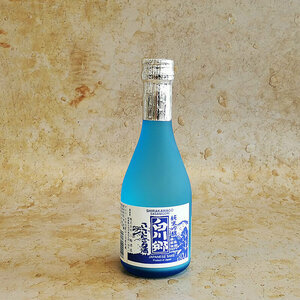 SHIRAKAWAGO SASA NIGORI JUNMAI SAKE
SHIRAKAWAGO SASA …
Japanese sake
13,80 €
SHIRAKAWAGO SASA NIGORI JUNMAI SAKE
SHIRAKAWAGO SASA …
Japanese sake
13,80 €
Rich aroma and round flavor from Yamada Nishiki rice. Clean finish.
SAKÉ TOKUBETSU JUNMAI
300ml or 720ml
View product
SAKÉ TOKUBETSU JUNMAI
300ml or 720ml
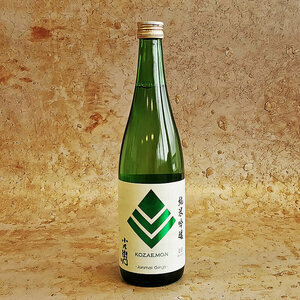 KOZAEMON TOKUBETSU JUNMAI SAKE
KOZAEMON TOKUBETSU …
Japanese sake
from 20,40 €
KOZAEMON TOKUBETSU JUNMAI SAKE
KOZAEMON TOKUBETSU …
Japanese sake
from 20,40 €

The origin of sake can be traced back to a fermented rice-based drink brought from Japan to China in the third century BC. Since then it has evolved into a unique and sophisticated alcoholic beverage of significant cultural significance to Japanese people.
Although sake is brewed only from rice, it offers a wide variety of tastes like wine. There are believed to be over 2,700 breweries across Japan and each brewery uses different rice, koji mold (yeast), and water (spring water or filtered water) to brew sake in a different way. unique brewing process for each of them. There are also differences in each sake-making region in Japan, adding more complexity to the sake world. To better appreciate it, you should know that it is divided into four main categories: DAIGINJO, GINJO, JUNMAI and HONJOZO.
DAIGINJO
Considered the excellence of Japanese sake, daiginjo has a subtle and fruity taste that is very light and fragrant. It is brewed with rice in which each grain has been polished to 50-65% and the various brewing processes are carried out with great care and attention. Serve chilled or at room temperature.
GINJO
Ginjo is a sake brewed with rice, the grains of which have been polished to 40-50%. Like daiginjo, the flavor of ginjo is light, fragrant, and even complex. Serve chilled or at room temperature.
JUNMAI
Brewed only with rice, filtered water, and koji mold, junmai sake generally has a full, slightly sour flavor. It goes well with a wide variety of foods. Serve hot or at room temperature.
HONJOZO
Honjozo is brewed with rice, filtered water, koji mold and yeast. The grain of rice is polished to more than 30%. A small amount of alcohol is added to the final fermentation process. Dry and sweet, usually lighter and more fragrant than Junmai sake. Serve warm or at room temperature.
Sake isn't just meant to be drunk; it is meant to be savored. It is served in restaurants, bars and lounges in square wooden containers called masu or in small glasses. Drinking sake in wine glasses is a good idea to appreciate all of its color, aroma and flavor. Sake is often served with meals. Depending on its color, bouquet and aroma, it emphasizes the flavor of fish and meat. Sake can be served with hot dishes and with snacks such as rice cakes or gingko seeds.
Sake scale
The categories Daiginjo, Ginjo, Junmai, Honjozo represent top quality sakes. The rest are classified as "normal sake" (Futsu Shu), but there is also a lot of good sake found in futsu shu. In addition, there are other varieties such as Nigori, Nama, and Ume Shu. Nigori sake is unfiltered, subtly sweet and has a white, wadded texture. Nama is raw, unpasteurized sake and has a fresh, light flavor. Ume shu is a sweet plum wine served as an aperitif or wine accompanying desserts. In the sake business, its taste, dry or sweet, is determined by the sake measurement value (Nihonshu Do).
Sake measurement value
Like wines, a sake can be defined in basic characteristics either dry or sweet. In Japan, the Nihonshudo, or sake measurement value, is often used to determine whether a sake is dry, sweet, or in between, by measuring the residual amount of sugar and alcohol it contains. In this measurement, water has a value of 0, and a sake with a measurement value of 0 should taste neutral, neither dry nor sweet. As shown in the figure below, a positive value means less residual sugar and therefore drier sake. Likewise, a negative value indicates sweeter sake.
The best sake tasting temperature
There are 3 ways to serve sake; hot, at room temperature or cool. Sake can be heated in different ways. The most common is the professional sake heater which is used in many Japanese restaurants. Another way to heat sake is to place it in the microwave for 20 to 30 seconds, but the ideal method is to use a double boiler until the sake is at the temperature you want. Most quality sakes are consumed at room temperature or cool like white wine.
How to store sake?
Sake is a delicate alcoholic drink. It is extremely sensitive to light and heat and should be handled like wine. Place the sake in a cool, dry, dark place so that its delicate balance is not affected by direct sunlight.

